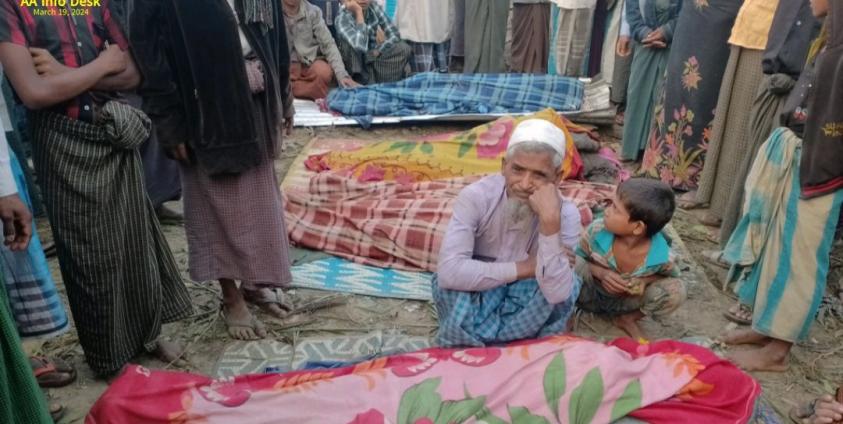Facing setbacks on Rakhine State battlefronts, the Junta intensifies attacks on civilian areas, including air raids, resulting in escalating casualties.
DMG's data reveals that in March alone, 54 civilians lost their lives and 122 sustained injuries in Rakhine State due to Junta-led violence, although these figures are approximate and the actual toll could be considerably higher.
A Rakhine human rights activist cautioned that the Junta, losing sight of distinguishing between civilian and military targets and resorting to reprehensible tactics in response to battlefield setbacks, flagrantly disregards international military laws, emphasizing the importance for people to remain vigilant.
Fatalities due to the Junta actions were reported as follows: 10 in Mrauk-U, 26 in Minbya, 1 in Ponnagyun,5 in Myebon, 1 in Kyaukphyu, 4 in Pauktaw, 2 in Ramree, and 5 in Sittwe. The wounded included: 19 in Mrauk-U, 38 in Minbya, 28 in Ponnagyun,16 in Myebon, 1 in Kyaukphyu, 4 in Ramree,12 in Sittwe, and 4 in Rathedaung.
These data indicate that the highest number of civilian casualties occurred in Mrauk-U, Minbya, Ponnagyun, and Myebon townships.
In the span of over four months since the resurgence of fighting against the Junta, the Arakan Army (AA) has seized control of Rathedaung, Ponnagyun, Kyauktaw, Mrauk-U, Minbya, Pauktaw, Myebon, and Ramree townships in Rakhine State, along with Paletwa Township in Chin State.
Currently, the Junta is conducting airstrikes on townships held by AA, resulting in daily civilian casualties.
"The Junta will not relinquish lost territories easily and will relentlessly devastate them. If control slips, they will keep causing trouble through other means”, a Rakhine politician noted.
At present, the military situations in the region remain tense as AA presses on with its offensive to seize the Junta's remaining bases in Maungdaw and Buthidaung townships.
Meanwhile, ongoing clashes are occurring in Ann Township, where the Junta's Western Regional Command headquarters is situated, and skirmishes are becoming increasingly frequent in southern Rakhine State townships like Kyaukphyu and Toungup.








